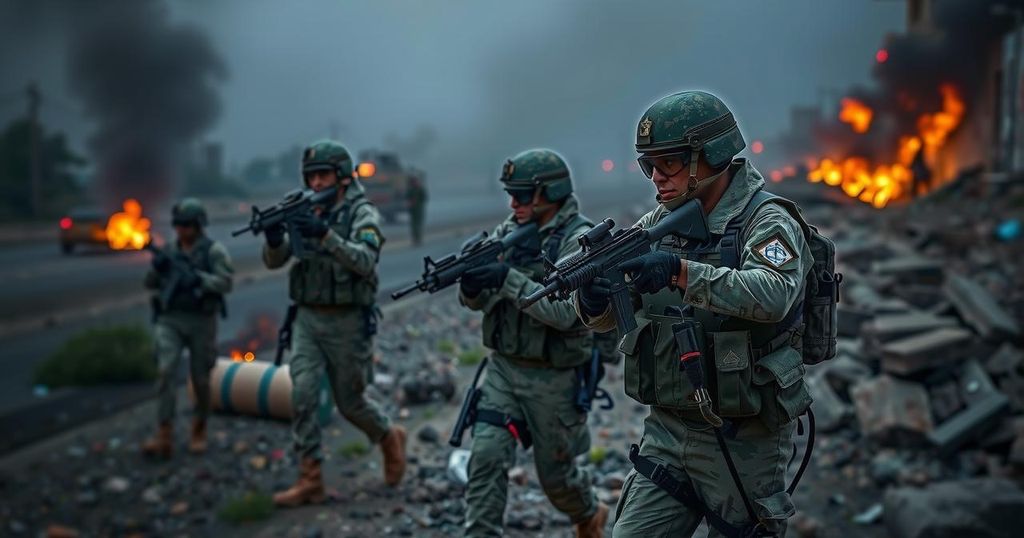Israeli air strikes in Gaza have resulted in 42 deaths amid claims of violations of a ceasefire with Hezbollah in Lebanon. The Israeli military is conducting operations in the West Bank, including house demolitions of families of detainees. EU officials call for urgent efforts towards a two-state solution, emphasizing the threat of internal extremism in Israel.
Israeli military operations have intensified across Gaza, resulting in the reported deaths of at least 42 individuals amidst ongoing air strikes. These incidents occur under a tenuous ceasefire in Lebanon, which, despite allegations of Israeli violations, appears to be holding firm. In a related development, the Israeli military has notified the family of a detained Palestinian regarding the imminent demolition of their home in the occupied West Bank, highlighting ongoing tensions in the region.
Internationally, Josep Borrell, the European Union’s foreign affairs high representative, has voiced alarm regarding the escalating extremism within Israeli society. He emphasized that such internal threats could undermine democracy in Israel and called for urgent action toward a two-state solution, asserting that prolonged instability in the region is untenable. Following the issuance of arrest warrants for Israeli officials by the International Criminal Court, Borrell urged that the ICC be supported in its role for establishing global justice. Meanwhile, military operations in Gaza continue, with residential areas being targeted and civilian casualties reported, further complicating the fragile situation in the region.
Moreover, the ceasefire between Israel and Hezbollah has been critically reviewed, as multiple violations have raised concerns regarding its sustainability. Lebanese officials have engaged in discussions to determine the ceasefire’s effectiveness and to address the potential repercussions of increased violence. Analysts warn that aggressive Israeli military tactics signal a challenging landscape for long-term peace in the region, with both sides struggling to establish trust after several incidents during the early stages of the ceasefire. The situation remains fluid and requires diligent monitoring as efforts for lasting peace continue to face steep hurdles.
The ongoing conflict between Israel and Palestinian groups in Gaza has escalated tensions across the region. Military operations in Gaza have resulted in significant casualties, while the situation in Lebanon remains fragile despite a ceasefire with Hezbollah. The Israeli military has a history of carrying out operations that target perceived threats, which often leads to civilian casualties. The international community, particularly the European Union, is advocating for a two-state solution to ensure long-term peace and stability in the Middle East, positioning the International Criminal Court as a pivotal player in addressing alleged war crimes related to the conflict. As both local and international actors navigate this precarious situation, the potential for both further violence and diplomatic resolution remains a central concern.
The recent surge in violence across Gaza highlights the precarious balance of the ceasefire in Lebanon and the ongoing strife within the occupied territories. The calls from EU officials for constructive dialogue towards a two-state solution reflect a broader international concern for peace in the region. The situation remains critical, as military actions continue to draw condemnation and fears grow that escalation may jeopardize ongoing peace efforts. Thus, the need for protective measures and attention towards the humanitarian conditions within affected areas is ever more pressing.
Original Source: www.aljazeera.com






